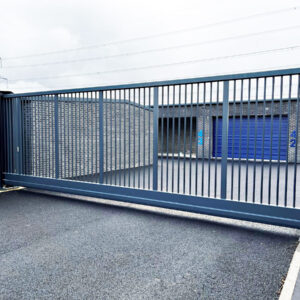A well-maintained septic tank keeps your home safe, prevents bad smells, and protects the environment. One of the most important parts of this care is regular septic tank pumping.
But here’s the big question: how do you choose the right company to handle it? There are many septic tank pumping services out there, but not all of them are the same. Picking the wrong one could mean poor work, higher costs later, or even damage to your system.
This guide will help you understand what to look for and how to choose the right septic tank pumping service for your home or business.
Why Septic Tank Pumping Matters
Septic tanks slowly fill up with waste and sludge. Over time, if the tank is not pumped out, it can overflow or clog the drain field. That can lead to bad smells, sewage backing up into your home, and expensive repairs.
Professional septic tank pumping services clean out the tank before it becomes a problem. Regular pumping keeps the system running smoothly and helps it last longer.
If you want your septic system to work well for years, you need to schedule pumping every 3 to 5 years, depending on tank size, household size, and water use.
Signs You Need Septic Tank Pumping
Sometimes, you don’t realize your tank is full until problems show up. Here are a few warning signs:
Slow drains in sinks, tubs, or toilets
Bad odors around your yard or drains
Water pooling in your yard near the septic system
Toilets that keep backing up
Gurgling sounds from pipes
If you notice these issues, it’s time to call septic tank pumping services right away. Ignoring them will only make things worse.
What to Look for in a Septic Tank Pumping Service
When searching for the right company, keep these things in mind:
Experience and Reputation
Choose a company with proven experience. A good septic company will have years of work behind them and a solid reputation in the community. Look at reviews online, ask neighbors, or check local forums to see who people recommend.
Proper Equipment
Septic pumping requires special trucks and tools. A professional company will show up with the right equipment to safely and fully clean your tank. If they don’t have modern gear, you might not get a proper service.
Licensing and Insurance
Always check if the company is licensed and insured. This protects both you and the workers in case something goes wrong. A reliable business will be happy to share their license details.
Clear Pricing
Avoid companies that give vague answers about costs. A good septic pumping service will provide a clear price upfront, with no hidden fees. Some may even offer maintenance plans, which can save you money in the long run.
Knowledge and Advice
The best companies don’t just pump your tank; they also guide you on how to keep it healthy. They should answer your questions, explain how often pumping is needed, and give tips on care.
Residential vs. Commercial Septic Pumping
Residential septic systems are usually smaller, but they still need regular care. For most homes, pumping every few years is enough.
Commercial septic systems, on the other hand, often deal with heavier use. Restaurants, apartment buildings, or office spaces may need pumping more often. When choosing septic tank pumping services, make sure the company has experience with your type of property.
Questions to Ask Before Hiring
Before you hire, ask these simple but important questions:
How long have you been in business?
Do you provide both residential and commercial septic tank pumping services?
What type of equipment do you use?
Are you licensed and insured?
Do you offer maintenance reminders or service plans?
These questions will give you a good idea of how professional and reliable the company is.
Common Mistakes to Avoid
When choosing a septic service, many people make mistakes that cost them later. Here are a few to watch out for:
Picking the cheapest company without checking their quality
Forgetting to ask about insurance or licenses
Not asking for references or reviews
Waiting until there’s a major problem before calling for service
Avoiding these mistakes can save you from stress and costly repairs.
The Long-Term Benefits of Choosing the Right Service
A good septic pumping company is not just about cleaning the tank. It’s about building a relationship with someone who understands your system and can help you care for it over time.
With the right partner, you’ll get:
Longer lifespan for your septic system
Lower chance of breakdowns or backups
Less risk of costly emergency repairs
Peace of mind knowing your home or business is safe
How Often Should You Pump Your Tank?
There’s no one-size-fits-all answer. The frequency depends on:
Size of your tank
Number of people using the system
Amount of water and waste going in
Most households need pumping every 3–5 years. Larger families or commercial properties may need it more often. Ask your septic tank pumping services provider to help you set the right schedule.
Final Thoughts
Choosing the right septic tank pumping service is one of the best things you can do for your home or business. Look for experience, proper tools, clear pricing, and trusted reviews. Don’t just go for the cheapest option—go for the one that will give you peace of mind and long-term care.
If you’re in Kingston, Ontario, and need reliable septic pumping, NoCo Septic is here to help. With professional service, friendly support, and years of experience, we make sure your system stays clean, safe, and worry-free.
FAQs
Q. How often should I get septic tank pumping services?
A. Most homes need pumping every 3–5 years, but it depends on the size of the tank and how much it’s used.
Q. What happens if I don’t pump my septic tank?
A. The tank can overflow, leading to sewage backups, bad smells, and costly repairs.
Q. Do septic tank pumping services also inspect the system?
A. Many companies include inspections with pumping. Always ask your provider to check for cracks, leaks, or other problems.
Q. Can I pump my septic tank myself?
A. No. Septic pumping requires special trucks and equipment. It’s not safe or possible to do it yourself.
Q. How do I know if my septic tank is full?
A. Warning signs include slow drains, gurgling pipes, bad odors, or pooling water in your yard.



